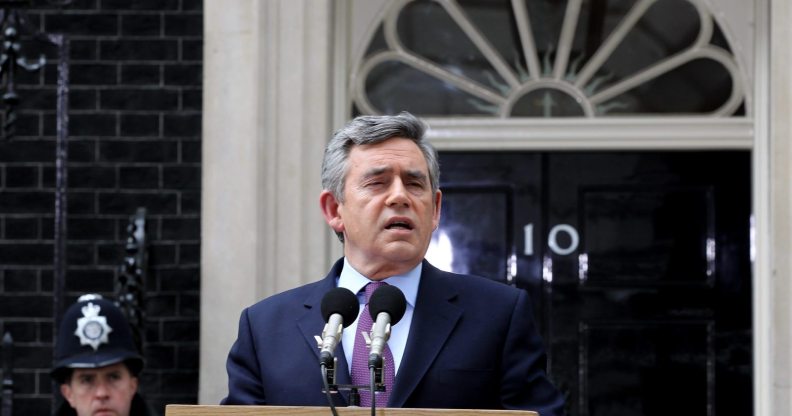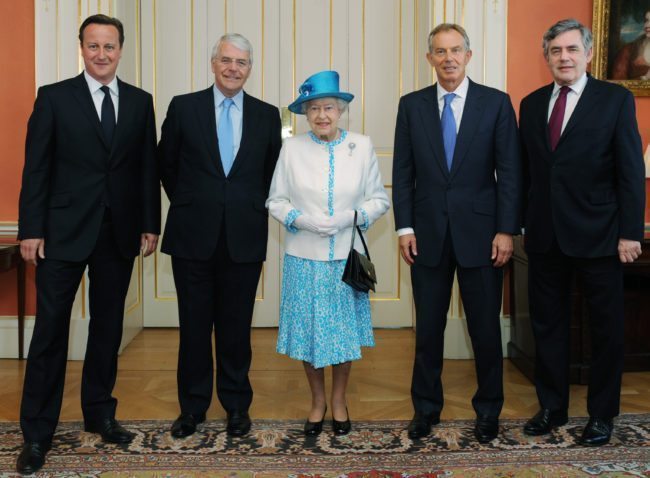Gordon Brown: Advancing LGBT rights took a long, bitter and painful struggle

LONDON, ENGLAND – MAY 10: Prime Minister Gordon Brown speaks about the current state of Government and announces that he will step down as Labour leader, outside number 10 Downing Street on May 10, 2010 in London, England. With all the election results now counted and no political party gaining enough parliamentary seats to form a government – negotiations between the Liberal Democrats, Conservatives and The Labour Party are continuing for a fourth day. (Photo by Matt Cardy/Getty Images)
The past 50 years have witnessed truly historic victories in the outrage against discrimination: in black civil rights, the end of apartheid and women’s liberation to name but three.
There is another monumental achievement – advancing LGBT rights is an outstanding triumph but one that involved a long, bitter and painful struggle.
So now is the time to pay tribute to ALL who fought this battle, starting with the 1967 Act that, for the first time at least, partially decriminalised homosexuality, albeit only in England and Wales.
Shamefully, Scottish law continued to discriminate unfairly for another 13 YEARS before Robin Cook and others managed to help secure a law change north of the border.

The battlers never gave up but it was always another barrier, always another struggle.
It seemed to take far too long to destroy discrimination, not least because of the venal Section 28 – introduced in 1988, but abolished in Scotland in 2000, with England and Wales following three years later. In 2001 the age of consent was equalised.
More time, more barriers. We saw civil partnerships legislated for in 2004 – with the first taking place the following year.
In 2009, we saw new rights for those in same-sex relationships to register both parents’ names on the birth certificate of a child conceived as a result of fertility treatment.
And rights to pensions and other benefits were extended to all couples in 2010. The exemption for employers, allowing them to exclude civil partners from spousal benefits paid in before December, 2005, was rightly ruled against by the Supreme Court in July this year.
I was brought up to treat people equally and my whole political life has been a fight for equality and a fairer society. No-one should ever feel unable to fulfil their potential whatever their race, religion or sexuality.
And I was particularly proud as Prime Minister to make the deeply-felt apology to Alan Turing – a remarkable man whose scientific genius had helped us win the Second World War but because of his sexuality was imprisoned and driven to suicide.
I hope in that same time Sarah and I made LGBT people feel welcome at Downing Street, marching with them, promoting them to ministerial ranks and making ‘pride’ in the widest sense an active part of government life and its strategy.
You cannot legislate love – but the law can break down barriers to liberty. In 2017 and every day for the next 50 years, the fight for equality goes on.

